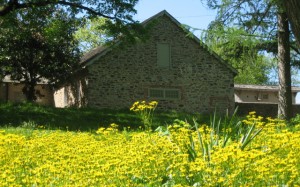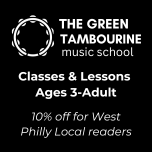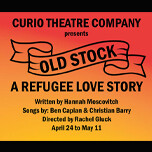 Bartram’s Garden has a chance to get awarded $200,000 after it was selected as a finalist for the Philadelphia Foundation’s Key to Community grant. The historic garden and arboretum located at 5400 Lindbergh Blvd. in Southwest Philadelphia is competing in the Community & Civic Engagement Category with their project titled “Reclaiming Local History and Championing an Inclusive Future in Southwest Philly.”
Bartram’s Garden has a chance to get awarded $200,000 after it was selected as a finalist for the Philadelphia Foundation’s Key to Community grant. The historic garden and arboretum located at 5400 Lindbergh Blvd. in Southwest Philadelphia is competing in the Community & Civic Engagement Category with their project titled “Reclaiming Local History and Championing an Inclusive Future in Southwest Philly.”
The grant will be used to directly support the neighborhood residents within the following initiatives:
• Establishing The NEST, an outdoor-focused pre-K and childcare center for 200 kids by the STAR IV-certified Woodland Academy using Bartram’s Garden as their classroom;
• Developing Philadelphia’s first free public boathouse;
• Leading a symposium on the Black history of Kingsessing;
• Hosting a regional youth summit for high school students learning from and honoring their African Diaspora heritage;
• Responding to the planned redevelopment of local public housing, which could displace up to 2,000 residents.
You can vote every day through July 26 from anywhere in Pennsylvania, Delaware, New Jersey, and New York.
To learn more about this and other initiatives and to vote, go here.







July 12th, 2019 at 3:30 pm
After voting for another project at a friend’s request, I also sent a note to the Philadelphia Foundation saying that I think these kinds of online “contests” are both humiliating and ineffective.
Humiliating because they require the would-be grantees to spend time each day for days drumming up clicks on social media from friends. The pitches rarely have anything to do with the actual program; they typically say, “WE’RE DESPERATE FOR MONEY PLEASE VOTE PLEASE HELP DESPERATE DESPERATE CLICK EVERY DAY PLEASE PLEASE KEEP CLICKING.” Most of the aspirants walk away with nothing.
Ineffective because the “winner” appears to be determined less by the quality of the proposal or the depth of the need, than by the number of Facebook friends a given organization’s staff has and the amount of leisure time those people have to scroll through FB and click links for somebody else. Nobody goes to the Phila Foundation website and chooses what they think is the best program. They just do what their friends ask them to do if they have time.
The one thing these contests prove definitively is that if grantmakers say “jump,” would-be grantees say “How high? How fast? How many times? For how long?”
I believe that grantmakers should choose grantees based on program quality and need, not their social networks’ ability to influence or manipulate algorithms. If you agree, please let the grantmakers know.
July 14th, 2019 at 7:22 pm
cool story bro.
July 22nd, 2019 at 1:57 pm
Bill, I agree that these formats feel weird.
Grantmakers should have the expertise to decide, shouldn’t they? Isn’t the point of the grant model for nonprofits that you might have a very worthy mission, and high effectiveness, but you aren’t well-supported in the community?
What are clicks but a popularity contest?
Fun fact: I was on the west coast and used a VPN to vote for my friend’s project, even if I don’t like these contests.
How do we know that there’s not a “technical solution”, where someone is feigning clicks by using VPNs, botnets, etc.? We already know that the Philly Foundation lacks the technical know-how to deploy a solution to prevent VPN users…sigh.
July 25th, 2019 at 2:36 pm
>>> these formats feel weird. Grantmakers should have the expertise
I’m sure it’s well-intentioned; in this case the grantmakers think they’re raising awareness of the applicants’ activities. Which they probably are, modestly.
But I doubt very much that they did any detailed analysis to measure what those clicks actually … measure. Who’s grown more aware, exactly? The people the orgs mean to help? I doubt it. The people who donate to the orgs? Mmmmmmmaybe. People who didn’t donate and probably won’t, and who don’t use the programs and probably won’t? Definitely reached lots of those.
Nor did they likely assess how much staff time the various organizations must dedicate to winning these contests. A couple hours a day easily went into drumming up clicks, and those hours could’ve been spent on something else.
Grantmakers face the same echo-chamber problem as everybody else. When they came up with this idea, I doubt there were many would-be grantees at the table.
July 26th, 2019 at 2:18 pm
>> What are clicks but a popularity contest?
The grantmakers’ good intention is that they think this will increase awareness for these nonprofits.
But it’s my guess that the clicks they’ll get won’t come from people whose “awareness” is particularly helpful. The clickers won’t be people who’d use the services (and didn’t already know about them), or people who’d donate much. They’ll be members of the social circles of the aspiring grantees’ staff.
It’s also my guess that the grantmakers didn’t spend a lot of time thinking about how many hours would-be grantees would put into farming clicks on this one, or at where those clicks were coming from.